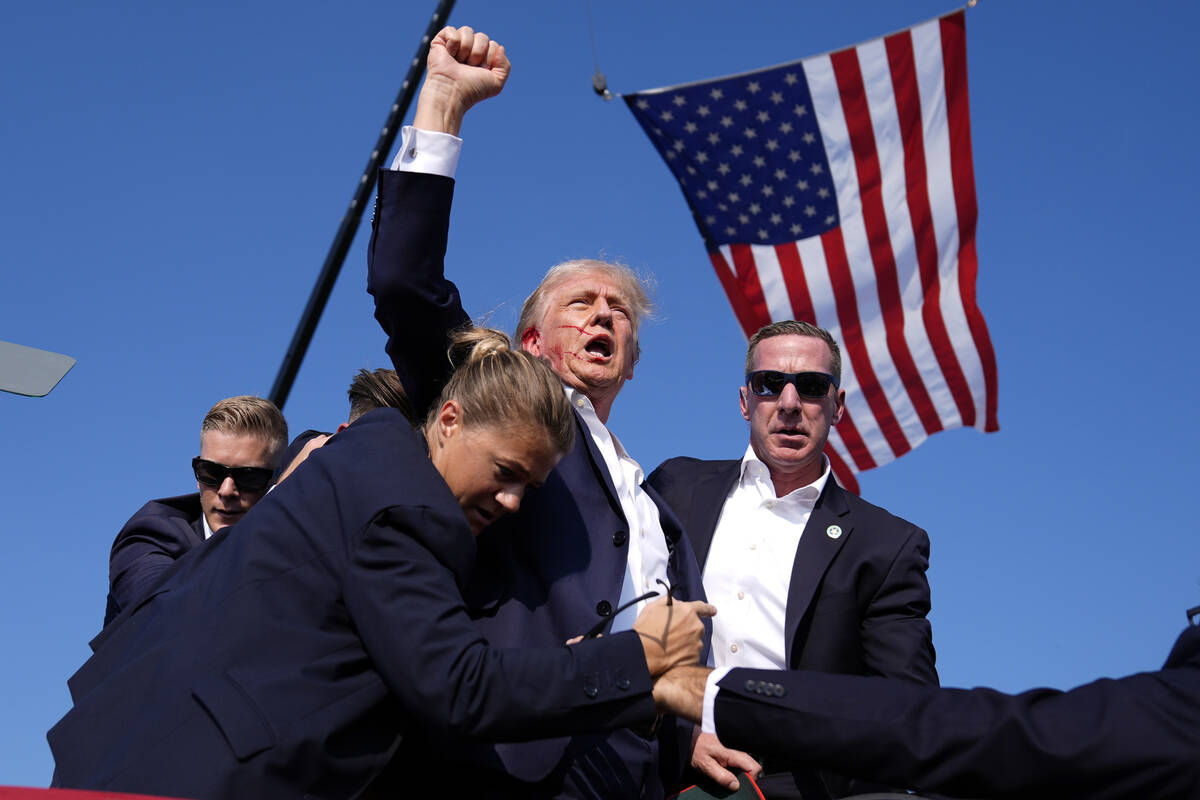VICTOR JOECKS: Why did God save Trump, but not Corey Comperatore?
Sometimes God’s miracles raise difficult questions.
Last weekend, former President Donald Trump came within milliseconds of being assassinated. Slow-motion video showed that moments before the bullet whizzed by him, Trump was looking to his right. At the perfect moment, he turned his head a tad more. That caused the bullet to hit his ear rather than his brain.
“It was God alone who prevented the unthinkable from happening,” Trump wrote on Truth Social afterwards.
Agreed. Although some might, I don’t have enough faith to think it was a fortuitous accident that Trump dodged a bullet he didn’t know was coming.
But a bullet didn’t miss Corey Comperatore. In a display of heroic masculinity, the rallygoer dived on top of his wife and daughter. He died shielding them.
How can one believe God protected Trump, but not Comperatore, who, his daughter said, “loved Jesus fiercely”? It’s a good question.
Start with dismissing two wrong answers. First, Comperatore didn’t die because God was incapable of protecting him. The God who parted the Red Sea and raised the dead could have saved Comperatore but didn’t. This tragedy is a specific example of theodicy, which deals with reconciling God and evil.
Theodicy says you can have two, but not three, of the following: God is loving; God is all powerful; evil exists, as seen in the murder of Comperatore.
Evil obviously exists. So either God doesn’t care or can’t stop it.
There is another option. The implied assumption here is that an all-powerful God will exercise his power continuously. Instead, he gave man free will. God could have stopped Adam and Eve from eating from the tree of the knowledge of good and evil in the Garden of Eden, but he didn’t. The evil and destruction we see in the world today stems from that decision.
An analogy: As a dad, I have the physical power to stop my young son from playing with his Nerf gun. But I use that power only occasionally. My restraint doesn’t mean I’m less capable or responsible if he shoots his sister with a dart.
Second, God didn’t save Trump because God is dependent on Trump to accomplish his plans. While God does raise people up to fulfill his purposes, he’s not nervous about whether they’ll come through. You see this paradox in Exodus 3. God appeared to Moses in the Burning Bush. The Lord told Moses, I have “seen the misery of my people in Egypt” and “I have come down to rescue them.” God sent Moses, but the Lord is the one who worked.
But that still doesn’t answer the question. Here are some possibilities. For one, many people pray for Trump. God may have moved in response to their prayers.
Another is that God had mercy on our country. The political division and corrosiveness we all dislike would be much worse if Trump had been assassinated, especially given the Secret Service’s egregious performance.
God did have mercy on Trump. All his fame, money and power won’t count for squat in eternity. While God judges the heart, there’s evidence Trump hasn’t acknowledged his sin and need for a Savior. Perhaps he will after almost dying.
In some cases, the good that comes from horrible things is apparent looking back. Early Christians faced fierce persecution for their faith. Many were executed. As Christians fled their homes, they shared their faith in their new homes. Persecution spread the gospel.
These are possible reasons. In Isaiah 55, however, the Lord declares, “For as the heavens are higher than the earth, so are my ways higher than your ways and my thoughts than your thoughts.”
Why did God save Trump but not Comperatore? I don’t know the answer, but I know the one who knows. And you can, too.
Contact Victor Joecks at vjoecks@reviewjournal.com or 702-383-4698. Follow @victorjoecks on X.


















